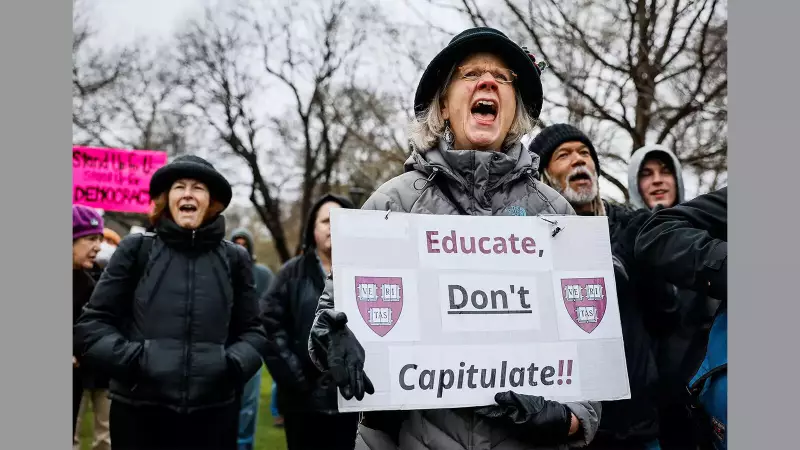
Harvard's Perfect Storm: Multiple Crises Hit Prestigious University
Harvard University, one of the world's most prestigious educational institutions, finds itself navigating turbulent waters as multiple crises converge simultaneously. The university faces severe challenges that threaten its academic standing, financial stability, and international reputation. What began as isolated issues has escalated into a comprehensive institutional crisis requiring immediate attention and strategic resolution.
Government Actions and Financial Implications
The Trump administration has taken significant punitive measures against Harvard, creating substantial operational challenges. The administration has barred Harvard from hosting foreign students, a move that impacts the university's diverse international community and global academic exchange programs. More critically, the government has paused $2.2 billion in research grants, alleging that Harvard failed to protect Jewish students from hate crimes while violating anti-discrimination laws.
These financial sanctions represent a massive blow to Harvard's research capabilities and academic operations. The frozen funds support numerous scientific projects, faculty positions, and academic initiatives across various disciplines. The timing couldn't be worse, as many research programs depend on continuous funding to maintain momentum and retain top talent.
Investigations and Accreditation Threats
Beyond the immediate bans and funding freezes, Harvard faces multiple federal investigations that could have long-term consequences. The White House has opened investigations into Harvard's government-funded patents, examining potential misuse of federal research dollars and intellectual property concerns. Simultaneously, authorities are scrutinizing Harvard's ties to China, including research partnerships, funding sources, and academic collaborations.
These investigations carry serious implications, including potential threats to Harvard's accreditation status. Federal authorities have demanded extensive records of university employees and international students, creating administrative burdens and raising privacy concerns within the academic community.
The Root Cause: Intellectual Monoculture
According to education experts and insiders, Harvard's current predicament stems from deeper institutional issues. The university has cultivated an intellectual monoculture that leaves no space for conservative voices and their ideas. This lack of ideological diversity has created an environment where certain perspectives are systematically excluded from academic discourse and campus conversations.
The solution, many argue, requires fundamental changes in Harvard's approach to academic freedom. The institution must create conditions for genuine diversity of thought and robust freedom of speech. This involves not only welcoming conservative perspectives but actively fostering an environment where challenging ideas can be discussed openly and respectfully.
Potential Resolution and Path Forward
Despite the severity of these challenges, Harvard may find a way to navigate through the crisis. Sources indicate that the university could wriggle free by striking a deal with authorities, with an announcement potentially coming soon. Such a resolution would likely involve policy changes, enhanced compliance measures, and commitments to address the identified shortcomings.
The broader question remains: how did an institution of Harvard's caliber land in this position? The answer lies in the complex interplay between political pressures, institutional culture, and the challenges of maintaining academic excellence while navigating increasingly polarized societal debates. Harvard's experience serves as a cautionary tale for educational institutions worldwide about the importance of balancing diverse perspectives while maintaining compliance with federal regulations.
As Harvard works to resolve its immediate crises, the long-term solution will require rebuilding trust with federal authorities, demonstrating commitment to inclusive discourse, and reestablishing its position as a beacon of academic excellence that embraces intellectual diversity in all its forms.





